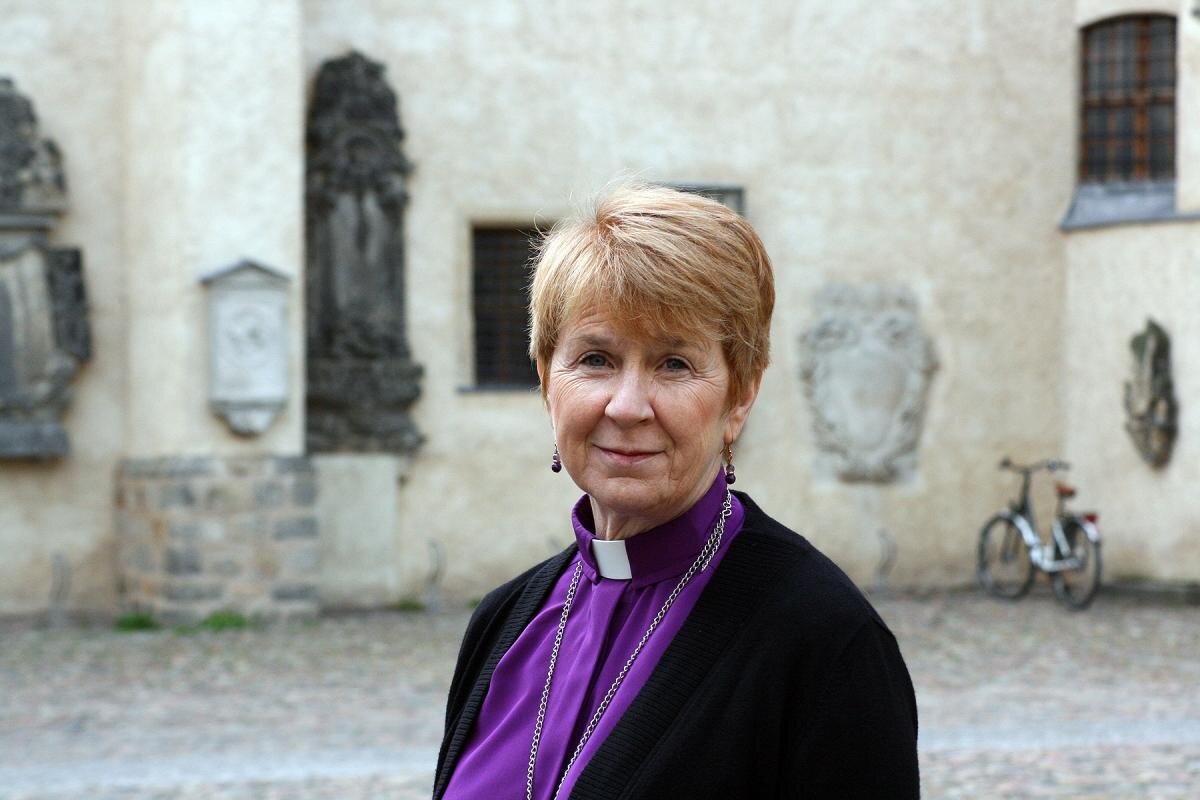Bishop Hutterer: Love Your Neighbor As Yourself
“Hearing that Jesus had silenced the Sadducees, the Pharisees got together. One of them, an expert in the law, tested him with this question: “Teacher, which is the greatest commandment in the Law?” Jesus replied: “‘Love the Lord your God with all your heart and with all your soul and with all your mind.’ This is the first and greatest commandment. And the second is like it: ‘Love your neighbor as yourself.’ All the Law and the Prophets hang on these two commandments.””
Lately I’ve been wrestling with why the ELCA is the second-most white denomination in the United States, followed only by the National Baptist Convention. The ELCA is 95% white, in a country that is 72% white. It just doesn’t make sense to me that our churches do not reflect our country, neighborhoods, or workplaces.
Last weekend I watched James Baldwin’s I Am Not Your Negro. And he made a comment that has haunted me all week. He chose not to be a part of a Christian church because “they did not practice what they preached when they confessed, ‘love your neighbor as yourself.’” It haunts me because he is right. We as church play a large part in keeping white privilege and systemic racism in place.
It is not enough that we just learn and read books. We must live differently. Some might tell me that I’m getting political. I don’t see it this way. This is not partisan, this is citizenship. This is common good. This is witnessing that there is room for all of us—for God created each one of us in God’s image.
These last few pandemic months are a time of profound and often painful changes and awareness for our world, our nation, our church, and ourselves. Institutions and ways of thinking are upended. It’s as if our world is a shaken snow-globe, swirling in the fog of disruption. As Christians, when we see winds of change, we recognize the Holy Spirit is working. We listen, we discern the direction of the wind, and are called to follow.
With our buildings and physical interactions denied to us, we are suddenly called to rethink how it is to be church, at a time when we are desperate for the community of God’s love.
Across the synod, I see pastors and leaders and members march forward, full of curiosity and bravery as they explore new ways of worship and prayer. I hear our synod share new and beautiful answers to the question of who we are as church.
And in the wake of the deaths of George Floyd and so many others, again we are suddenly called to rethink how it is to be church, as we realize our established ways of fighting for racial justice have been mostly ineffective.
As we confront systemic racism, I ask you to embrace the same Holy Spirit that has sustained us in these last few months. I ask you to step into difficult conversations and actions and self-reflection. I ask you to find courage, knowing we are beloved children God, part of a myriad humanity whose many faces are created to mirror God’s love. I ask you to love your neighbor as yourself.
While we have many paths to choose from, here are just a few suggestions. The ELCA Anti-Racism Pledge offers concrete words and actions to follow. You can watch the 1966 documentary, A Time for Burning, where the minister of Augustana Lutheran Church in Omaha, Nebraska, tries to persuade his all-white congregation to reach out to black Lutherans in the city's north side. The staff of the Office of the Bishop is currently reading Robin DiAngelo’s White Fragility as part of our self-reflection.
In this whirlwind of change, the Holy Spirit is lifting us and calling us to move forward. We don’t know where this path is leading, or how long we will be on it. And even when the fog of change hides our destination, we can still see each other. I thank God for every one of you as we journey together.
The Rev. Deborah K. Hutterer
Bishop
Grand Canyon Synod of the ELCA


